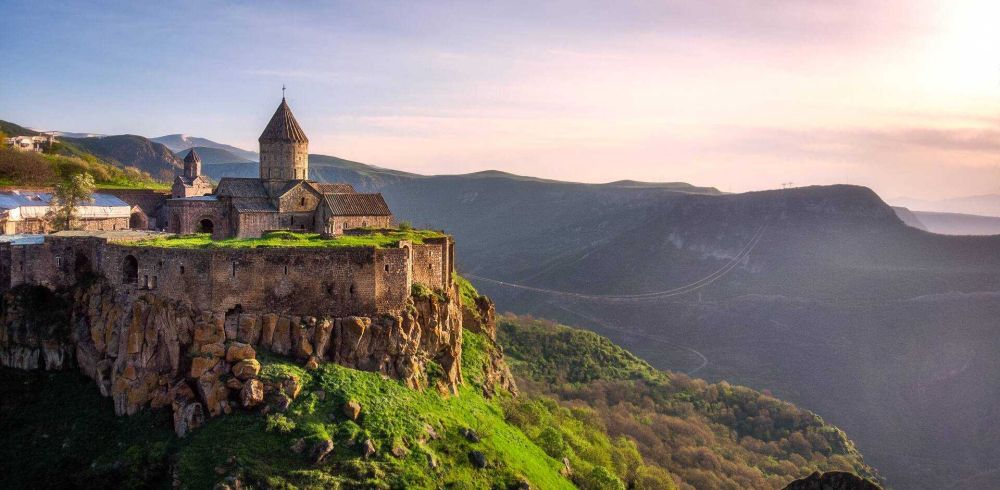

The picturesque town of Goris lies in the southern reaches of Armenia, framed by rugged mountains and endowed with a wealth of natural and cultural attractions. Tourism in Goris and its surrounding Syunik region has a rich history, tightly woven into the fabric of the town. With its traditional stone houses, medieval architecture, and the famous troglodyte dwellings carved into the cliffs, Goris has long captured the imagination of travelers.
Tourism in Goris can be traced back to the 19th century, when explorers and scholars visited the region to study its unique geological formations and rich cultural heritage. The development of infrastructure, such as the construction of the Goris Hotel in the early 20th century, paved the way for a slow but steady growth in visitors, many drawn by the area's tranquil beauty and the allure of its ancient cave settlements.
During the Soviet years, tourism in Goris was promoted as a part of the broader initiative to showcase the cultural and natural wonders of the Soviet Union. Visitors from across the USSR traveled to Goris to enjoy its picturesque scenery, historical monuments, and the hospitality of the local people. The establishment of museums and conservation of historical sites added to the town's tourist appeal.
The collapse of the Soviet Union in 1991 brought challenges, but also an opportunity for Goris to rebrand itself and attract international visitors. With the gradual growth in Armenia's economy and stability in the region, Goris began to feature more prominently in travel guides and tour itineraries.
In recent years, eco-tourism and adventure travel have become increasingly popular, with Goris offering a perfect base for hiking, caving, and exploring the nearby Tatev Monastery with its world's longest reversible aerial tramway, the Wings of Tatev. The growth in boutique hotels and local guesthouses has also contributed to the rise of sustainable tourism, providing an authentic experience while preserving the town's unique charm.
Cultural events, such as the Goris Mulberry Festival, are becoming significant draws for tourists, keen on experiencing local traditions and cuisine. In recognizing the compelling blend of nature and history, authorities and investors are increasingly focusing on Goris, aiming to enhance the town's appeal while maintaining responsible tourism practices to protect its heritage for future generations.
As tourism continues to evolve, there is a concerted effort to preserve the historical identity of Goris. Renovations and restorations are carried out with sensitivity to conserve ancient landmarks, such as the medieval Goris Fortress and the iconic stone pyramids, ensuring that the town's historical narrative continues to be shared with visitors from around the world.
Whether it's the allure of its ancient caves or the hospitality of its residents, Goris remains a testament to Armenia's enduring charm and a jewel in the crown of the country's tourism offering. As the town looks to the future, it continues to welcome visitors with open arms and a promise of unforgettable experiences.